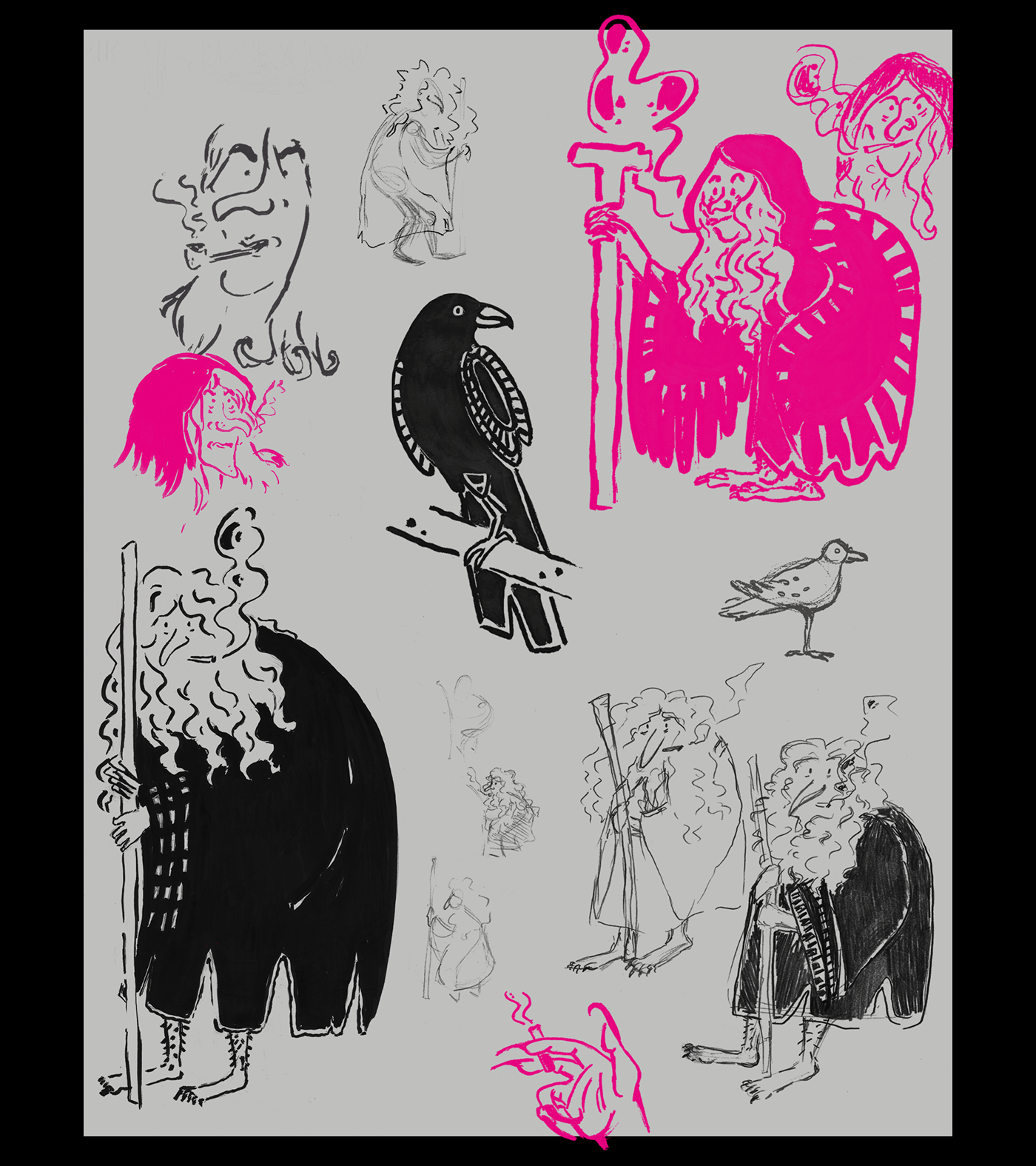

Matinta é uma velha feiticeira de aspecto assustador com cabelos compridos e bagunçados que se cobre de trapos pretos. Não se sabe ao certo sua origem. Sua existência está associada a uma maldição: quando está para morrer, ela pergunta “quem quer?”, e se alguém responder que sim, essa pessoa recebe a maldição de se tornar a Matinta. Em geral, essa praga é passada a mulheres gananciosas e abastadas que pensam que a oferta se trata de joias ou dinheiro. Pela manhã, aparece como uma senhora pobre que mendiga por fumo pelas ruas do Rio de Janeiro; de noite transforma-se em um pequeno pássaro preto, cujo assobio agudo e alto é sinal de mau-agouro. Caso seja enganada, Matinta se vinga e seus poderes podem causar dores ou doenças. Além disso, cantará todas as noites na casa dessa pessoa até que a dívida seja paga.
O projeto visa o desenvolvimento de uma história em quadrinhos focada na vivência desse personagem folclórico pelas ruas do Rio de Janeiro atual. Foram usadas como referências gráficas as xilogravuras do Movimento Armorial, iniciativa artística cujo objetivo era fazer arte erudita a partir de elementos da cultura popular nordestina.
A história pode ser associada à noção de experiência narrativa, trazida por Walter Benjamin no livro O Narrador, na medida em que retrata uma personagem folclórica no Rio dos dias atuais, tendo como enfoque uma crítica à ganância das elites, e traz a realidade daqueles que são sujeitos a morar nas ruas.
—
Matinta is an old scary looking witch that has a long and messy mane and covers herself in black rags. No one knows her origin for sure. Her existence is directly connected to a curse: when she's about to die, the witch asks "who wants it?", and if anyone answers positively, that person is forever condemned to become Matinta. Mainly greedy well off women are the ones affected by this hex as they think jewelry or money was being offered. During the morning, she appears as a poor old lady that begs for cigarettes in the streets of Rio de Janeiro; at night, she turns into a small black bird whose whistle is a bad omen. If deceived, Matinta always gets her revenge and her powers can cause pain or diseases. Furthermore, she'll sing every night on this person's house until that debt is paid.
The project’s objective is to create a comic book focused on the daily life of this folkloric character in the streets of contemporary Rio de Janeiro. The woodcut prints from the Movimento Armorial were used as reference, it was an artistic initiative with the objective of creating erudite art using elements from the Brazilian Northeastern popular culture.
This story can be associated with the notion of "narrative experience", mentioned by Walter Benjamin in the book The Storyteller, as it shows a folkloric character in the contemporary Rio, focusing on a critique of upper classes' greed, and brings the reality of those that are bound to live in the streets
1º lugar, no grupo do Brasil, no Parla! 2017 - mostra Dhis de design de personagens, mostra internacional realizada em parceria entre o Dhis e a PUC-Rio, no Brasil, com o CONFIA e o IPCA, em Portugal
—
1st place, in the Brazilian Group, in Parla! 2017 - mostra Dhis de design de personagens, international show held in partnership between Dhis and PUC-Rio in Brazil, with CONFIA and IPCA in Portugal



